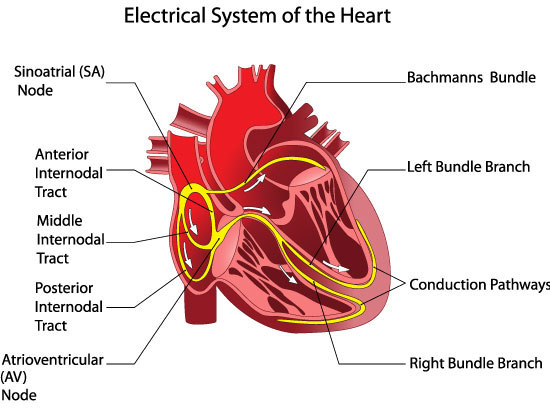Abnormal Heart Rhythms
Abnormal heart rhythms may cause the heart to beat too slow or too fast, or they may disrupt the coordination between the top and bottom chambers of the heart. This may cause a change in heart function leading to symptoms. The symptoms associated with abnormal heart rhythms may include palpitations, skipped heart beats, rapid heartbeats, lightheadedness, dizziness, fainting, chest pain, chest pressure or chest discomfort. Abnormal heart rhythms may be caused by abnormalities within the heart or problems outside of the heart. Fever, anxiety, thyroid conditions and kidney malfunction are some conditions that may affect the heart rate and rhythm.

